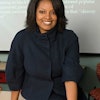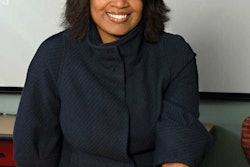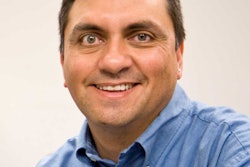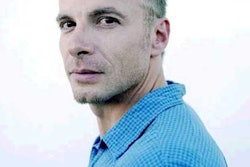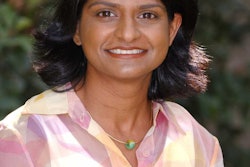Dr. Luis Urrieta Jr. Draws distinct lines to separate his professional life from his personal life, but his work is, in fact, personal to him. He studies Chicano/a and Latino/a education, identity, agency and social movements and indigenous education, among other topics, because of his upbringing in Los Angeles, he says.
"Growing up in East L.A. and Pico Rivera, (Calif.)," says Urrieta, "and being of Mexican parents and having a lot of those contradictory experiences in school, you know, going through some of my own acculturation and assimilation processes, my own bilingualism, my own relearning of a lot of things, has just led me in a lot of directions in terms of identity."
Although Urrieta's parents kept him and his siblings out of trouble in a rough neighborhood and focused them on doing well in school, they had no knowledge of the college admissions process and could not offer him much academic guidance. It wasn't until a field trip with a ninth-grade Japanese-American teacher, Mrs. Tanigawa, that he visited the University of California, Los Angeles, campus and realized the possibilities in academia.
"I didn't know that people actually sat around under trees and read," says Urrieta, who had a proclivity for reading as a child.
Urrieta later enrolled at UCLA and earned a bachelor's with the highest departmental honors in anthropology. Then, at the urging of an African-American graduate student, Adande Washington, he decided to go for a master's degree. However, his plans to apply to graduate school took a detour when he was prompted by happenstance to open the letter of a recommender before sending out his application. The only professor who had given him an A+ in college wrote a terrible recommendation saying the only reason Urrieta had been let into the honors program was because of his mentor, Washington, and that he would be a liability for any graduate program.
With his hopes and self-confidence dashed, Urrieta took a hiatus from academe and went into teaching for four years. In retrospect he says he now realizes he could have continued with his plans to apply to graduate school by getting a recommendation from another professor. At the time, however, it had an impact on him.
"I was young, and I was very sensitive to what other people thought about me," he says.
It took positive reinforcement from his educational foundations professor, Dr. Bernardo Gallegos, in his teaching certificate program to get him back on track. Urrieta then found the focus of his career after a conversation with Dr. Bryan Brayboy, an associate professor of policy leadership and curriculum at Arizona State University, at an American Educational Research Association meeting. While Urrieta had already been working as a professor, Brayboy, who is American Indian, encouraged him to work to represent his community.
"We have a very strong responsibility to tell other truths and to represent ourselves and the people whom we are committed to in different ways than we've been traditionally presented," says Urrieta.
His critiques of U.S. society and calls for change have fomented disagreement, but, he says, he strives to do his best because it is hard for critics to pick at his conclusions if the research is methodologically solid.
Brayboy says Urrieta's work is compelling because he's passionate about it.
Urrieta's career has taken him full circle: Back to his family's home state in Mexico, Michoacán, where he is serving as a Fulbright- GarcÃa Robles Scholar and researching the causes of migration and postsecondary education models for indigenous people.
Academic work can be consuming, he says, but having a spouse who is not in his field and speaking only Spanish at home helps keep him grounded. "I want to continue to be able to see life the way that people that are not in the academy see life."
He tackles issues that matter to his community and the academy, Brayboy says. "He's maintained a real sense of humility and humanity, and I think that's rare."
Title: Associate professor of cultural studies in education and Mexican American studies, University of Texas at Austin
Education: Ph.D., culture, curriculum and change/concentration in anthropology, University of North Carolina, Chapel Hill; M.A., educational foundations, California State University, Los Angeles; B.A. history and anthropology, University of California, Los Angeles
Age: 37
Career mentor:. Kristine Gutiérrez, University of Colorado at Boulder Advice for new faculty: "There has to be a balance between work and being healthy—socially, physically, emotionally. Especially because as Latinos a lot of times it is very alienating to work in certain university environments. And so if you don't have that balance you can get sick, literally."
